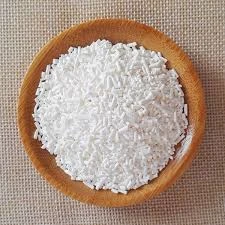
Natural Alternatives for Preserving Soft Drinks Without Artificial Ingredients
Natural Preservatives for Soft Drinks A Healthier Alternative
In recent years, there has been a noticeable shift in consumer preferences towards healthier beverage options. As concerns about synthetic additives and preservatives grow, many manufacturers are exploring natural alternatives, particularly for soft drinks. This rising demand for natural preservatives is revolutionizing the beverage industry, providing consumers with safer, healthier, and more sustainable choices.
Natural preservatives are derived from plant or animal sources, and they offer a safer option for preserving the freshness and extending the shelf life of products compared to their synthetic counterparts. Traditionally, soft drinks have relied on chemical preservatives like sodium benzoate and potassium sorbate, which, while effective, can raise health concerns among consumers. This has paved the way for exploring natural alternatives that not only maintain the quality of beverages but also align with the growing trend for clean labeling and transparency in food production.
One of the most commonly used natural preservatives in soft drinks is citric acid. Extracted from citrus fruits, citric acid not only adds a tangy flavor but also acts as an effective preservative by lowering the pH and inhibiting the growth of harmful bacteria and molds. It’s a versatile ingredient that fits well with the profile of numerous soft drinks, from lemon-lime sodas to fruity flavored beverages.
Another promising natural preservative is ascorbic acid, also known as vitamin C. This powerful antioxidant not only enhances the nutritional profile of soft drinks but also prevents oxidation, which can lead to flavor degradation and color changes. Ascorbic acid is especially beneficial in fruit-based soft drinks, maintaining both the flavor integrity and visual appeal of the product.
natural preservatives for soft drinks

Rosemary extract is gaining attention as a functional ingredient in the beverage industry. Rich in antioxidants, rosemary extract can extend shelf life while adding a subtle flavor to drinks. Its antimicrobial properties make it an effective barrier against spoilage, making it an excellent choice for manufacturers looking to capitalize on natural preservation methods.
Honey and other natural sweeteners like agave syrup also exhibit preservation qualities. With their high sugar content and natural antimicrobial properties, they can inhibit the growth of certain microorganisms. Using honey not only adds a distinct flavor but also enhances the overall health profile of the soft drink, making it a more appealing choice for health-conscious consumers.
Furthermore, the use of essential oils has emerged as a novel approach in the preservation of soft drinks. Oils derived from plants such as thyme, oregano, and cinnamon have shown significant antimicrobial properties, providing a natural means to protect beverages from spoilage. These oils can add unique flavor notes and increase the sensory appeal of the drinks, allowing manufacturers to differentiate themselves in a crowded market.
However, the adoption of natural preservatives is not without challenges. Natural ingredients can be more expensive and may alter the taste profile of beverages, requiring manufacturers to carefully balance flavors. Moreover, some natural preservatives have unique characteristics, requiring specific formulations and processes to ensure their efficacy. Despite these challenges, the potential benefits far outweigh the drawbacks, as consumer demand for cleaner, healthier products continues to rise.
In conclusion, the move towards natural preservatives in soft drinks reflects a broader trend in the food and beverage industry focused on health and wellness. With ingredients like citric acid, ascorbic acid, rosemary extract, honey, and essential oils leading the charge, manufacturers have a wealth of options to choose from. As they navigate the challenges of formulation and cost, the benefits of employing natural preservatives will likely dominate market trends, aligning with consumer preferences for transparency and quality in their beverage choices. Ultimately, the future of soft drinks may be defined by natural ingredients, offering consumers a healthier alternative without compromising taste or experience.
-
Pure Sodium Dichloroisocyanurate Dihydrate | Powerful DisinfectantNewsAug.29,2025
-
Industrial Chemicals: Quality & Purity for Every IndustryNewsAug.28,2025
-
Nitrile Rubber Honoring Strict Production StandardsNewsAug.22,2025
-
Aspartame Ingredients Honoring Food Safety ValuesNewsAug.22,2025
-
Fertilizer for Balanced Plant NutritionNewsAug.22,2025
-
Cyanide Gold Processing with High Purity AdditivesNewsAug.22,2025
-
Formic Acid in Textile Dyeing ApplicationsNewsAug.22,2025
Hebei Tenger Chemical Technology Co., Ltd. focuses on the chemical industry and is committed to the export service of chemical raw materials.
-

view more DiethanolisopropanolamineIn the ever-growing field of chemical solutions, diethanolisopropanolamine (DEIPA) stands out as a versatile and important compound. Due to its unique chemical structure and properties, DEIPA is of interest to various industries including construction, personal care, and agriculture. -

view more TriisopropanolamineTriisopropanolamine (TIPA) alkanol amine substance, is a kind of alcohol amine compound with amino and alcohol hydroxyl, and because of its molecules contains both amino and hydroxyl. -

view more Tetramethyl Thiuram DisulfideTetramethyl thiuram disulfide, also known as TMTD, is a white to light-yellow powder with a distinct sulfur-like odor. It is soluble in organic solvents such as benzene, acetone, and ethyl acetate, making it highly versatile for use in different formulations. TMTD is known for its excellent vulcanization acceleration properties, which makes it a key ingredient in the production of rubber products. Additionally, it acts as an effective fungicide and bactericide, making it valuable in agricultural applications. Its high purity and stability ensure consistent performance, making it a preferred choice for manufacturers across various industries.





